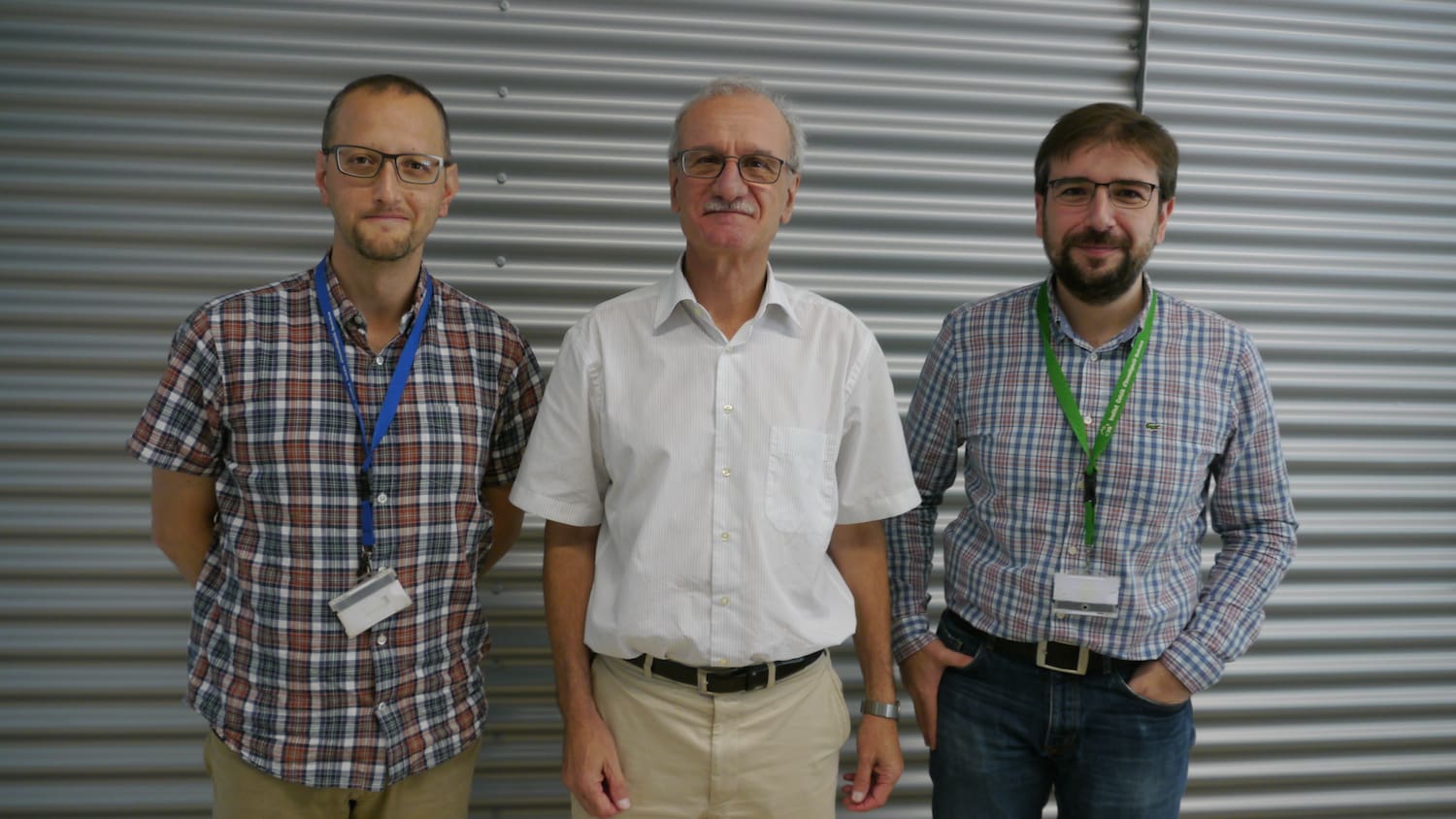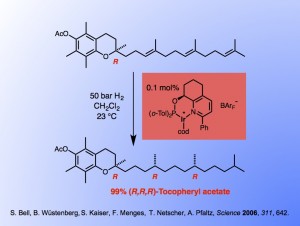
 05/10/2016
05/10/2016
 12:00 h
12:00 h
 ICIQ Auditorium
ICIQ Auditorium
- Lecturer: Prof. Andreas Pfaltz
- University: University of Basel (Switzerland)
- Sponsored by:

Asymmetric Hydrogenation with Chiral Iridium Catalysts
Iridium complexes with chiral P,N ligands have considerably enhanced the scope of asymmetric hydrogenation.1 The catalysts are readily prepared, air-stable and easy to handle. In contrast to rhodium and ruthenium diphosphine complexes, they do not require a coordinating group near the C=C bond and, therefore, allow highly enantioselective hydrogenations of a wide range of unfunctionalized tri- and even tetrasubstituted alkenes. In addition, they have also been successfully used for the hydrogenation of various functionalized olefins, heterocycles such as furans and indoles, and imines. In this lecture practical and mechanistic aspects, the scope, and new new applications of this catalyst class will be discussed.
1. Reviews: S. J. Roseblade, A. Pfaltz, Acc. Chem. Res. 2007, 40, 1402. D. H. Woodmansee, A. Pfaltz, in Topics in Organometallic Chemistry, Vol. 34, Ed. P. G. Andersson, Springer, Berlin Heidelberg, 2011, pp. 31-76. D. H. Woodmansee, A. Pfaltz, Chem. Commun. 2011, 47, 7912. J. J. Verendel, O. Pàmies, M. Diéguez, P. G. Andersson, Chem. Rev. 2013, 114, 2130
Other events

Let's create a brighter future
Join our team to work with renowned researchers, tackle groundbreaking
projects and contribute to meaningful scientific advancements





















